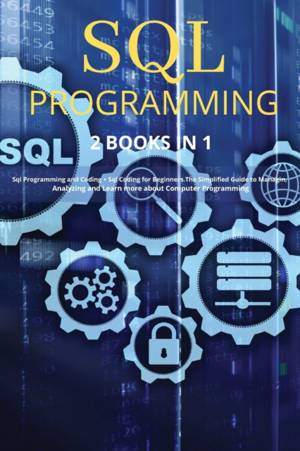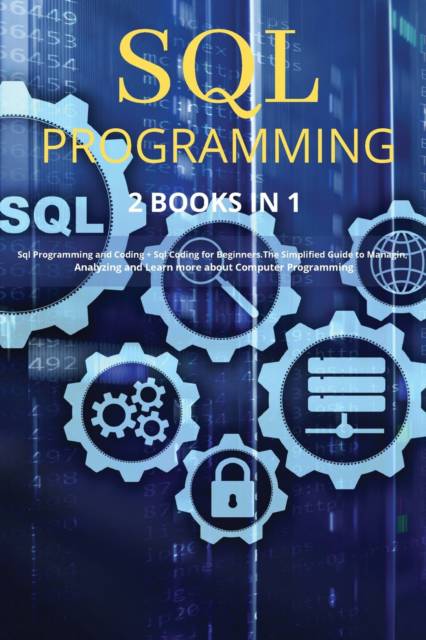
- Retrait gratuit dans votre magasin Club
- 7.000.000 titres dans notre catalogue
- Payer en toute sécurité
- Toujours un magasin près de chez vous
- Retrait gratuit dans votre magasin Club
- 7.000.0000 titres dans notre catalogue
- Payer en toute sécurité
- Toujours un magasin près de chez vous
Sql Programming
2 BOOKS IN 1: " Sql Programming and Coding + Sql Coding for Beginners.The Simplified Guide to Managing, Analyzing and Learn more about Computer Programming
Tony Coding, Michael LearnDescription
The truth is: SQL stands for Structured Query Language. Many people scoff dubiously when it is announced that SQL is, indeed, a programming language.
When people think of programming languages, all that comes to their mind are C++, Python, Java etc, . People disregard SQL as a programming language because of its interface structure and limited functionality. However, they fail to understand that while C++, Python are third level programming languages, and hence more developed, it doesn't change the fact that SQL falls under the umbrella of programming languages.
. The demand for this old, simple language is increasing rapidly because of its compatible nature. A person working on SQL can shift from one language from another, like Microsoft SQL, FoxPro and MY SQL.
If you think SQL is a dying language, then reconsider. Here are a few reasons why it is not:
- Knowledge of SQL creates opportunities for diverse career options
- The corporate world is using SQL to keep track of their database, meaning having knowledge of SQL is a helpful trait when it comes to finding jobs
- Helps you understand the origins of programming languages and overall sense of computer programming.
The guide to help you learn the SQL language used by apps and organizations, and how to add, remove and update data.
The goal of the e-Book is simple: To help people learn the basics of Structured Query Language and explain to them how it is used by apps and organizations.
You will also learn:
- SQL programming and coding
- What is data definition language
- Adding, updating, removing data from a database
- SQL joins and unions
- How to write stored procedures and functions
- SQL Transactions
- Basics of SQL
- SQL Security
Spécifications
Parties prenantes
- Auteur(s) :
- Editeur:
Contenu
- Nombre de pages :
- 470
- Langue:
- Anglais
Caractéristiques
- EAN:
- 9781801828604
- Date de parution :
- 12-02-21
- Format:
- Livre broché
- Format numérique:
- Trade paperback (VS)
- Dimensions :
- 152 mm x 229 mm
- Poids :
- 621 g

Les avis
Nous publions uniquement les avis qui respectent les conditions requises. Consultez nos conditions pour les avis.






